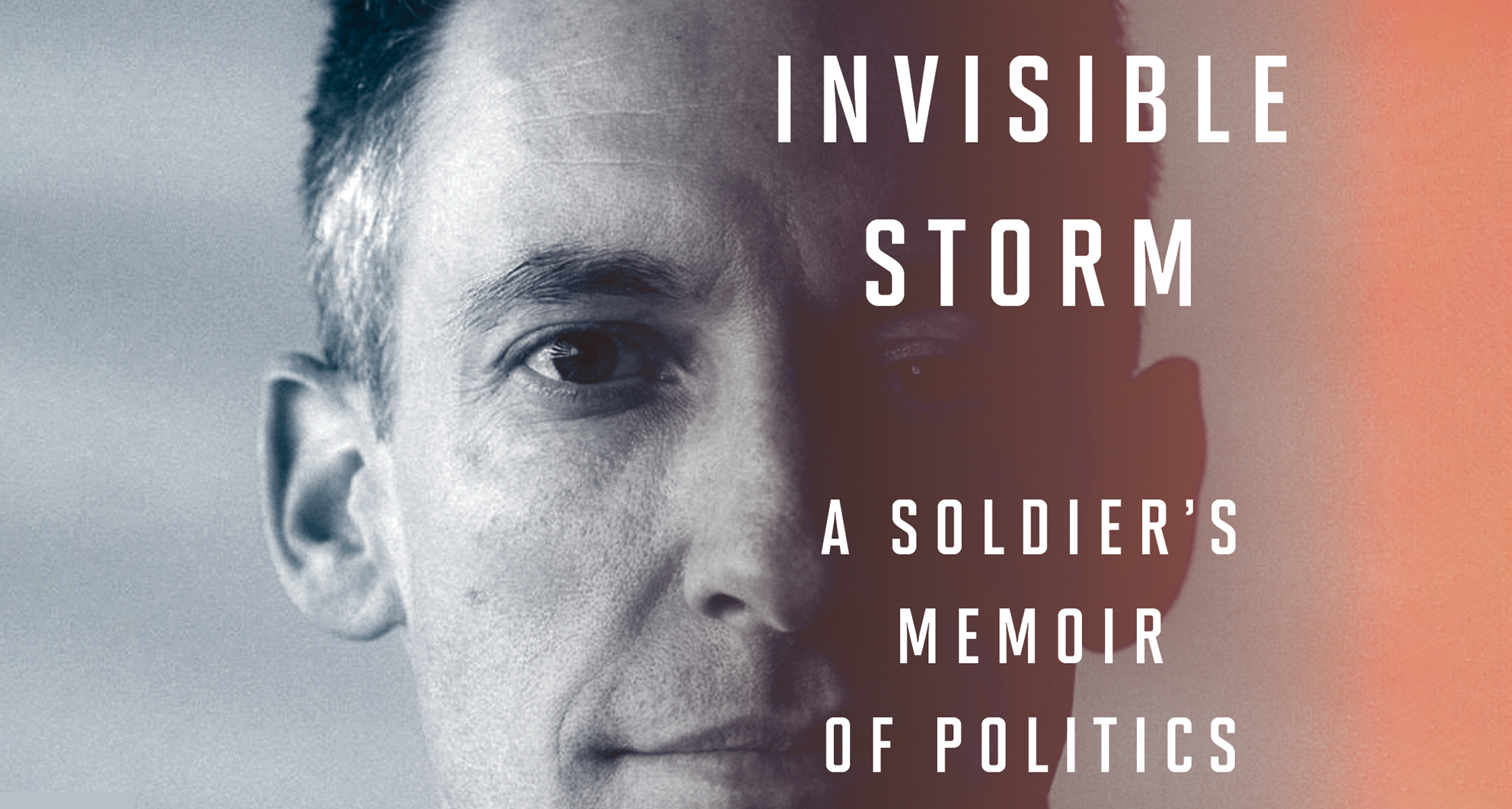This article originally appeared on our substack
A few weeks after Donald Trump’s November 2016 victory, I found myself in a hotel ballroom in Nashville, addressing hundreds of aspiring candidates, political operatives, and grassroots volunteers. I spoke about how we, as a generation, couldn’t count on our elders to solve our problems—how we had to lead the way in a new, uncertain phase of our civic life. The message seemed to resonate with a mostly millennial crowd who shared a distinct sense that, as dispiriting as the prior election had been, our time had finally come. When I concluded my remarks, I gave the podium to a man who had, by that point, become the embodiment of the sentiment of my speech and a mascot for our generation: Jason Kander.
Although it was my first time meeting Jason, I’d been a fan of his ever since I’d watched his legendary campaign ad, the one where he disassembled and assembled an AR-15 blindfolded (a pro-gun control ad, if you were curious). He was the first millennial elected to a statewide position and was at that particular gathering to give his first public speech since his United States Senate loss, a race in which he came up 2.8 percentage points short in a state Hillary Clinton lost by 19 points. Second to the presidential election, Jason’s Senate contest was the race I was most closely watching on November 8th.
As heartbreaking as Jason’s 2016 defeat was, a funny thing happened in the aftermath of that election: Jason became a political star. The Nashville event was the first of countless progressive gatherings he’d keynote over the next two years as he stumped for candidates, pushed for voting rights, and built momentum for his much-speculated run for president. I’m sure he still wanted to be a U.S. Senator if he could, but the consolation prize was pretty sweet. By 2018, he was texting celebrities like Lin-Manuel Miranda, cavorting with party luminaries like President Obama, and had built an early-state grassroots infrastructure that was the envy of his would-be competitors. In his words, he’d become “the guy who won by losing.”
I’d like to say that Jason and I became friends during those initial years, but it’d be more accurate to describe us at the time as acquaintances. He would speak at summits I’d host and occasionally drop in for a podcast interview. I was in awe of his ability to be in all places at all times. One day, he’d be speaking at one of my events in Arizona, and the next day, I’d get a text from my mom saying she’d just met him while canvassing for a congressional campaign on Staten Island. He was famous for almost never turning down an invitation—something I interpreted at the time as a virtue—a sign that he had what it took to go the distance.
Of course, there was a hidden side to Jason’s relentless work ethic: a secret that became public when he bowed out of political life in late 2018, citing untreated trauma and mental health issues stemming from his service in Afghanistan. I didn’t hear much from Jason for a year after that, and I often thought about what had become of him. Then, at some point in 2019, we started talking, sharing fitness tips and other life hacks. He became an enthusiastic member of a workout group I created for burned-out professionals, a community that helped motivate him in his quest to reclaim his pre-campaign physical health. We began trading ideas and drafts of our various writing and entrepreneurial projects, and one day, during the early days of the pandemic, he called and asked me to help him revive his successful but latent podcast (which I won’t name here because it contains partisan content; “Lost Debate” is a 501(c)(3)). We’ve been co-hosting that show once a week ever since.
In short, although we’d become close friends, there was a part of me that still wondered what the heck had happened back in 2018. Jason would share tidbits here and there, and as time went on, I realized he was totally comfortable sharing the details. Through short and sometimes-awkward conversations, I’d developed a rough sense of the story. Yet, I had so many questions that I couldn’t find the time or courage to ask. How bad could things have gotten to stop him from doing something he seemed to love so much? What kinds of symptoms were we really talking about? Would he ever run again?
I went searching for clues in his first memoir Outside the Wire and found none. That book is compelling for a political memoir, which is like saying something is riveting for an instruction manual or erotic for a religious text. While the book is funny, witty, and insightful in ways other authors in the genre often fail to achieve, there are no truly good political memoirs. Politicians are always scared of publishing something that will give fodder to their next opponent. Jason, by his own admission, was planning a run for President of the United States, which meant there was a limit to what he’d been willing to share.
Invisible Storm, Jason’s forthcoming book, is not a political memoir—at least not a normal one. There’s no faux humility, no opaque euphemisms, and no contrived three-act hero story. He doesn’t distill his “values” from every phase of his life or end with a begrudging admission that he may just be the guy for the top job after all.
This book is real. It chronicles night terrors and daymares, panic attacks, sleep paralysis, suicidal thoughts, and crippling guilt. There has never been a book written by a politician—current or former—with this level of candor. Consider, for example, the following passage:
“My nightmares evolved. Instead of being in a meeting with an Afghan warlord, I was at home. Instead of coming to attack me, violent people were coming for Diana … I’d wake up in terror, but I couldn’t move a muscle because my body remained asleep.”John Doe
When I said I’d wondered what truly happened back in 2018, well, I don’t have to wonder anymore. The combination of Jason’s lucid writing and willingness to bear all makes for one moving description after another. He describes the “voltage of danger” he sensed everywhere in civilian life, how whenever he sat at a restaurant, he had to face the door, how he shook hands with every attendee at every campaign event in part so he could “assess every threat in the room,” and, most alarmingly, how he’d “come to understand why some people chose suicide.” This is not typical politician-speak.
The big question that looms over this work is what these revelations mean for Jason’s political future. “You have to be a little crazy to be in politics,” Jason writes, “but what you cannot be is mentally ill.” I’d argue that contemporary politics has yielded many a successful mentally ill candidate, including for some of our highest offices. With that said, let’s give his claim a little oxygen: Is this memoir a sign that Jason won’t ever run for office again? After all, there’s a vast difference between admitting you smoked pot in college and saying you’ve contemplated suicide. If he did run after writing this book, he’d certainly be setting a new standard for authenticity in politics. In that spirit, a reporter recently called to ask whether Jason would run for president again, and my honest answer was, “As a friend, I don’t want him to run, but as a citizen, I have a different opinion.” He’s built a wildly successful, happy, and fulfilling life outside of electoral politics. Why change that?
The obvious answer is that certain people are born to do one thing, and it’s possible that Jason Kander was put on this earth to run for office, or, more accurately, to serve in high office. Some of the most interesting parts of Invisible Storm involve him grappling with his own ambition. Consider, for example, the following:
“I was jealous of people—the normal people who could be happy doing a regular job, raising kids, and diving into hobbies. I didn’t understand them, but I envied them all the same. … But the truth was, I just wanted to be a person who wanted those things. Someone who didn’t fear slowing down and could imagine actually living a fulfilled life.”John Doe
There are two ways to read a passage like this. You could read it as a confirmation that Jason will never truly be able to leave the game. Or you can believe that he never knew how to be fulfilled outside of politics until he truly dealt with his shit. In other words, is he more Tom Brady or Andrew Luck? I lean toward the latter, in part because I know how awesome Jason’s life is right now and how happy he seems, but it’s easy to see the other side. However, part of me believes the speculation on Jason’s political future is missing the point of Invisible Storm. The true value of this work is how it chronicles his journey to recovery. Whether he runs or not, he’s given people struggling with trauma and mental illness a reason to hope.
Jason isn’t just honest about his mental health; he also details certain inconvenient truths about his political life that most politicians aren’t willing to admit. Case in point is when he talks about the pressures of fundraising, admitting that he’d kept in better touch with his Georgetown Law School friends than those he served with in Afghanistan. Or when he describes his reaction to being elected Secretary of State of Missouri: “It was the perfect role for someone desperate to avoid dealing with himself” and “public adulation and media attention are a useful distraction.” If I could share just one quote from this book with the candidates I’ve coached over the years, it would be that one. There’s an emptiness and a lack of self-awareness I’ve sensed in most aspiring candidates who’ve walked through my door, and Invisible Storm may just be the best model for how candidates can go about a true process of growth and self-discovery.
Most political memoirs treat the “political spouse” as a one-dimensional figure—an opportunity to humanize the author. I heard a politician once say, “I’m not perfect. Just ask my wife,” as if anyone thinks that’s necessary. This book doesn’t do that. Jason’s wife Diana is every bit a main character in his journey, peppering the book with first-person accounts of her own struggles with post-traumatic stress disorder (PTSD). We get unvarnished depictions of her experience of his deployment and all-consuming campaigning, as well as their collective descent into PTSD. She wrote:
“The only way I could avoid the fear that he might be hurt or kidnapped was to pretend like it already happened and try to go about my day as if he was already gone.”John Doe
Upon his return, Diana’s often-futile efforts to help Jason wound up taking a heavy toll. “Instead of saving him,” she wrote, “I’d joined him in the drowning.”
We learn early on in Invisible Storm that Jason and Diana met in high school and attended prom together after Jason’s original date canceled. They attended law school together, often staying up all night studying and debating, about which he wrote, “Every night was a slumber party with my best friend.” They operated as one, which made her particularly susceptible to adopting his pathologies. “When you live with someone who tells you how dangerous the world is,” she writes in one harrowing passage, “how vulnerable you and your family are, you start to believe it.”
At its heart, this book is a love story. It’s a window into one of the best marriages I’ve ever encountered—a partnership that’s all the more inspiring because of how imperfect it’s been. As they make painfully clear, Jason and Diana passed up countless opportunities to slow the pace of their life down and seek help. Yet, they remained fully committed to each other every step of the way, even as they endured the full gamut of communication challenges that any couple might experience. Of course, in the end, Jason and Diana tackled recovery like they’d done nearly everything else: together. “At night we’d compare our lessons and our homework like we had when we were law students.” He dedicates the book to her: “My teammate, my soulmate, my best friend, and my hero.” If that doesn’t get you misty, I don’t know what will.




